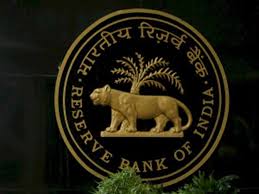
CARO 2020 – Companies (Auditor’s Report) Order, 2020
MCA in place of existing the Companies (Auditor’s Report) Order, 2016, has notified CARO 2020 after consultation with the National Financial Reporting Authority constituted under section 132 of the Companies Act, 2013.
Auditor’s report to contain matters specified in paragraphs 3 and 4. – Every report made by the auditor under section 143 of the Companies Act on the accounts of every company audited by him, to which this Order applies, for the financial years commencing on or after the 1st April, 2019, shall in addition, contain the matters specified in paragraphs 3 and 4, of the CARO 2020.
Provided this Order shall not apply to the auditor’s report on consolidated financial statements except clause (xxi) of paragraph 3.
It shall come into force on the date of its publication in the Official Gazette.
CARO 2020 – Key changes/highlights
Matters to be included in auditor’s report, in CARO 2020 – the reporting clauses are more extensive and detailed than were in CARO2016
Unlike CARO 2016, which required reporting on all fixed assets, new reporting requirements pays attention to Property, Plant, Equipment and intangible assets.
Reporting on revaluation of Property, Plant and Equipments by company
Reporting of proceedings under the Benami Transactions (Prohibition) Act, 1988.
Reporting of compliances if company was sanctioned working capital limits in excess of Rs.5 crores or more from banks or financial institutions.
– whether the quarterly returns or statements filed by the company with such banks or financial institutions are in agreement with the books of account of the Company, if not, to give details;
Reporting of investments in or in providing of any guarantee or security or granting any loans or advances to companies, firms, Limited Liability Partnerships or any other parties.
Reporting of compliances with RBI directives and the provisions the Companies Act with respect to deemed deposits.
Reporting with respect to transactions not recorded in the books of account surrendered or disclosed as income in the income tax proceedings.
Comprehensive reporting requirement for default in the repayment of loans / other borrowings or in the payment of interest
– whether the company is a declared wilful defaulter by any bank or financial institution or other lender;
– whether term loans were applied for the purpose for which the loans were obtained; if not, the amount of loan so diverted and the purpose for which it is used may be reported;
– whether funds raised on short term basis have been utilised for long term purposes, if yes, the nature and amount to be indicated
Reporting on treatment by auditor of whistle-blower complaints received during the year by the company
Reporting on internal audit system
– whether the company has an internal audit system commensurate with the size and nature of its business;
– whether the reports of the Internal Auditors for the period under audit were considered by the statutory auditor;
Reporting on cash losses
Reporting on resignation of the statutory auditors
Reporting on uncertainty of company capable of meeting its liabilities
Reporting transfer of unspent CSR amount to Fund specified in Schedule VII
Reporting on qualifications or adverse remarks by the auditors in the CARO reports of companies included in the consolidated financial statements
It is expected that CARO, 2020 will improve the overall quality of reporting by the auditors and thereby lead to “greater transparency and faith in the financial affairs of the companies.”
Read : CARO 2020 dated 25.02.2020

